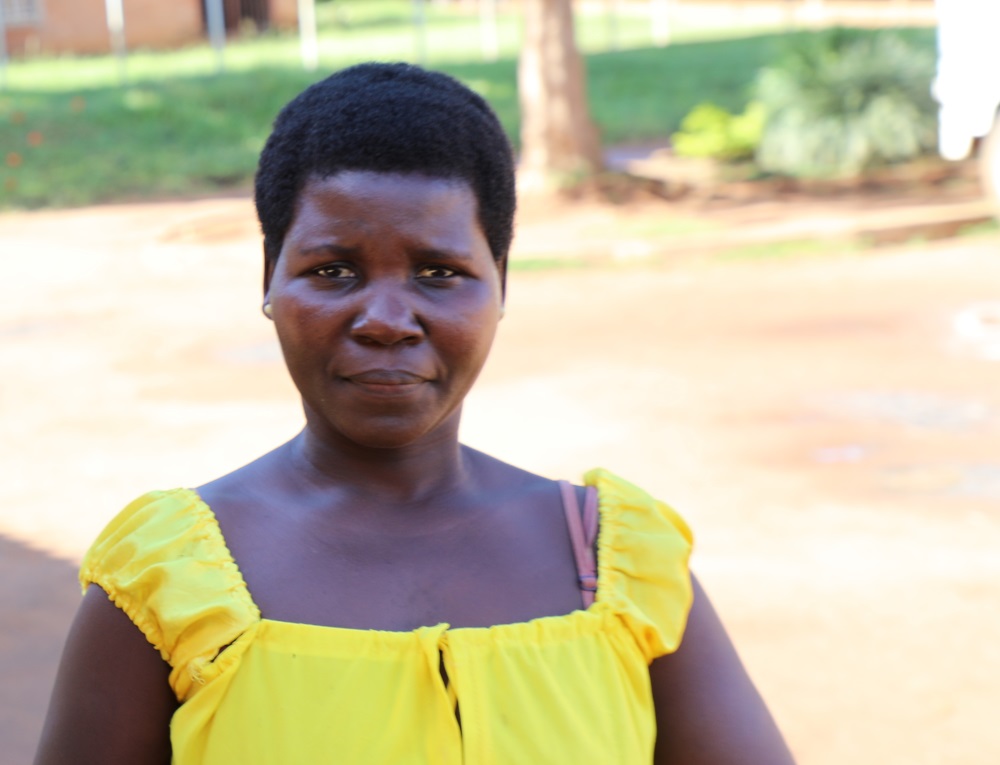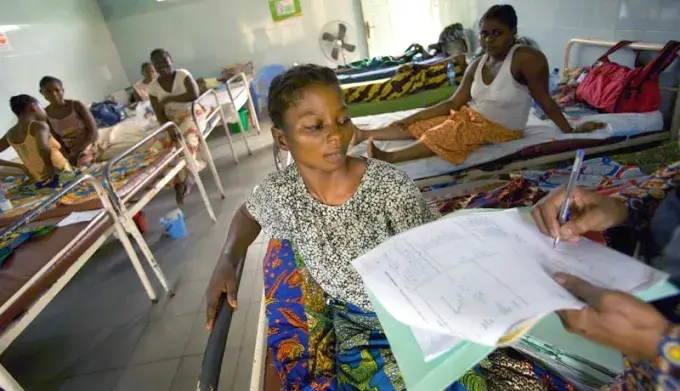SALAMBA VILLAGE, Mulanje, Malawi—It seemed a morning like any other. But as she chatted to her friend at the nearby borehole, the discussion turned to how a woman who had been leaking urine had been surgically repaired in hospital.
This instantly struck a chord, as her daughter had suffered from this debilitating condition for 13 years.
That moment changed Margret Rambiki’s life. Since a difficult childbirth led to an obstetric fistula in 2002, she had been leaking urine and embarrassingly, she smelled of it wherever she went.
Mrs. Rambiki’s mother found out from her friend how her daughter could access this critical service at Chinyama Health Centre.
It was the end of a long, dark road for Mrs. Rambiki.
Understanding obstetric fistula
An obstetric fistula is a childbirth injury caused by an obstructed, prolonged labour. The sustained pressure of the baby’s head on the mother’s pelvic bone causes damage to the soft tissues, creating a hole – or fistula – between the vagina and the bladder and/or rectum.
The result is leaking of urine and/or faeces via the vagina. Women with this condition smell of urine or faeces and typically suffer stigmatization by and isolation from their communities.
An estimated one per cent of women aged 15 to 49 years in Malawi have reportedly experienced an obstetric fistula (DHS2015/16).
Early pregnancy puts girls at risk

Mrs. Rambiki became pregnant at the age of 14 by her future husband, Robert Rambiki. Due to a delay in accessing health-care services, not did she only lose the child, but she also developed an obstetric fistula. She remembers her father arguing with the health-care provider over the delayed care that led to her loss and injury.
For 13 years she endured stigma, ridicule, and isolation from her friends. But in one sense she was lucky – her husband Robert did not leave her. For many girls and women, a fistula signals the end of marriage and they are often shunned by their communities, leading to deepening poverty.
Despite her fistula, Mrs. Rambiki carried two pregnancies to term and gave birth to two children, a 13-year-old girl and a 9-year-old boy. Both are in school.
I have never enjoyed being a woman since I had this condition.
“I have never enjoyed being a woman since I had this condition. It was tough to live [with],” said Mrs. Rambiki, now 30.
Search for fistula treatment
She and her husband tried to cure her condition by visiting traditional healers, to no avail.
“Traditional herbalists tried everything. We have been told to do lots of things but the condition was never healed. When you are in that situation, you try almost anything,” she said.
When her mother mentioned the other woman’s positive experience at Chinyama Health Centre, she jumped at the opportunity. Early in 2015, she was examined at the health centre and was informed that she might be able to undergo specialized treatment at Mulanje District Hospital.
UNFPA supports fistula repair in Malawi
Since 2011, UNFPA, the United Nations Population Fund, in collaboration with the Freedom From Fistula Foundation and AMREF Health Africa, has been supporting the Government of Malawi to provide fistula treatment in various districts.
In November 2015, the first ever obstetric fistula repair camp was conducted at Mulanje District Hospital. Mrs. Rambiki underwent surgical repair and was healed.
That morning when my mum went to draw water saved my life.
“I am now dry. I have no problems. This is how a woman should be,” she said. “That morning when my mum went to draw water saved my life.”
In 2017, 169 women were repaired in Malawi, with support from UNFPA.
From fistula sufferer to advocate

Since she was repaired, Mrs. Rambiki has encouraged other women in her community to get treatment for fistula. This includes two of her friends, who have been repaired at the same facility.
During the 2018 obstetric fistula repair camp at Mulanje Hospital, which was supported by UNFPA, she brought her friend, Agnes Belubelu, 33, to access treatment.
Ms. Belubelu had suffered from fistula since 2008 and was looking forward to being repaired and able to go home ‘dry’.
Mrs. Rambiki was thrilled to that her friend might soon be healed. And yet, she had another fistula sufferer in mind. “There is one woman in my village whom I still want to access the service, and I will make sure she comes in the next camp session,” she said.
Now that she has been restored, Mrs. Rambiki does not want to risk another childbirth injury – and has turned to family planning.
I am afraid the condition may recur and that is why I am using family planning to ensure I will not get pregnant.
“At present, I am not thinking of having another child. I am afraid the condition may recur and that is why I am using family planning to ensure I will not get pregnant,” she said.
Obstetric fistula repair camps in Malawi
In 2015, UNFPA supported the first ever fistula camp in Mulanje Hospital, at which more than 25 women were repaired. Among those repaired was a woman who had lived with fistula for 66 years.
In 2018, UNFPA organized a second fistula repair camp at Mulanje Hospital. This time, 66 women were mobilized and 28 were treated, while others were referred for specialized treatment or scheduled for the next repair session.
Women from surrounding districts, including Thyolo, Phalombe, Blantyre, Chiradzulu and Neno, as well as women from Mozambique, have come to access the services.
This treatment outreach approach has brought services closer to underprivileged women who suffer in silence.
“This treatment outreach approach has brought services closer to underprivileged women who suffer in silence. We have changed the lives of many women since we came to Mulanje,” said Grace Hiwa, UNFPA Programme Officer for Fistula in Malawi.
- Henry Chimbali




